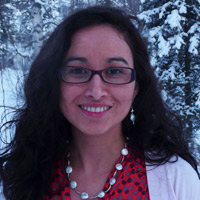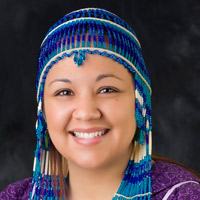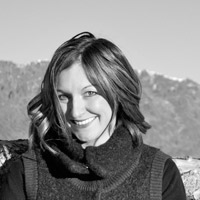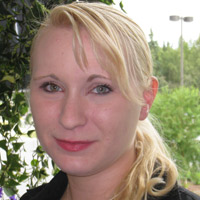UAA graduates more Ph.D.s in clinical-community psychology with a rural indigenous emphasis
by Kathleen McCoy |
For the second year in a row, UAA has graduated two doctoral candidates in clinical-community psychology with a rural indigenous emphasis.
We talked with this year's two newly minted Ph.D.s, (Ruth Zuniga and Tina Woods) and also caught up with a graduate from last year now working in Nome (Erin Johnson), and a graduate who will finish up this August (Rebecca Volino Robinson.)
Here is a little background about each of them, their dissertation work and what they're up to now.
Ruth Zuniga
Ruth practically has to pinch herself to realize she has achieved her doctorate in an area about which she is completely passionate. The journey was long and fraught with challenge, and several times required her to take a distinctive "leap of faith," unsure if she would land well, or even at all. We're happy to report she always did, and if there is a lesson in Ruth's story, it could be to follow those hunches and take those leaps.
Ruth grew up in a rural community in Costa Rica, the youngest in a large family living a subsistence lifestyle. Her family acquired electricity when she was 6, and their first telephone when she was 18.
She was the first in her family to attend high school. Even that chance was slim, but an older sister supported the idea, and Ruth was eager to try-even if it meant getting up at 4:30 every morning for the 90-minute bus ride each way.
College was also difficult, but she managed to earn a bachelor's in science in psychology from the Universidad Latina de Costa Rica. She tried to balance classes with working nights and weekends managing tourist hotels, but it wasn't until she found full time, day time work at a power plant that she was able to finish. But she didn't stay put for long; she met her husband, who was bound for the University of Idaho. She followed, but with no English language skill and as the spouse of an international student, she wasn't eligible to take classes.
That first year in the U.S. was really hard, she said. Ruth learned English by watching TV with a blanket thrown over the screen so she'd be forced to learn words with no visual clues. She persuaded a professor to let her audit a class for eight months. After that, she passed the language test required of foreign students (TOEFL), and her hotel experience landed her a job as a resident assistant in graduate student housing. Still in Idaho, she earned her master's in counseling and human services and her husband completed his doctorate.
Scouting for a doctoral program, she discovered UAA's community psychology doctoral program; her husband found a post-doc position at UAF and eventually a professorship at both UAA and UAF. Thus began their Alaska tenure, where she worked with Providence Family Medicine as a behavioral health consultant offering counseling services to Spanish-speaking patients while she pursued her doctorate at UAA. Her thesis reflects her clinical work. Titled "The Influence of Diabetes Care Group Medical Visits on Patient's Behavioral Intentions, Self-management Behaviors and Clinical Outcomes," she studied the effectiveness of group meetings in positively influencing the management of a chronic medical condition.
She and her husband are now bound for the University of the Pacific, outside of Portland, Ore., where she will serve as the director of the Latino Bilingual track, helping to train young, bilingual psychologists.
Tina Woods
Tina Woods will be the first to tell you that getting to the end of her doctoral program was one very long haul. Three times she considered stopping with a master's degree, but each time, her passion for the health of Alaska Native people, and the support of her husband, her fellow students and her advisor, Dr. E.J. David, kept her going.
"I can't express how great it feels," she said a few days before the May 4 Hooding and May 5 Commencement ceremonies. "I don't even have the words to describe it!"
She's convinced that the single most important quality for getting through a Ph.D. program is physical stamina. Yes, there must be passion for the intellectual pursuit of knowledge and, in her case, an unwavering commitment to the wellbeing of Alaska Native people. But she readily admits she sacrificed sleep and exercise and sometimes even sound nutrition to balance family and academic life.
So it is with a great sense of satisfaction that she finished the program. Still, she's a little uncomfortable using her newly earned title. "Dr. Woods, it sounds strange to me," she says. Rather than simply achieving this status, she sees herself as becoming "a bridge between two worlds." She is trained as a Western scientist, and she has respect for the knowledge of elders in her community.
"Alaska Native elders have valuable wisdom" about the human condition and how to navigate life, she says. An example she offers is the harmony between mind-body-spirit.
"The elders tell us that if you sit with anger, you will feel stress and your physical body will deteriorate. You can internalize this anger and that has implications for your health."
Western science has validated this with the recent ACES study, she said, which analyzes the lingering and detrimental effects of Adverse Childhood Experiences.
"I feel obligated, out of respect, to bring their message to the table, and to help translate it so that the Western world can understand it," Tina said.
"All too often in our society today, rather than working together, we work against each other. We don't understand each other. I hope to bring more presence to the relationship, to help all of us on both sides understand each other," she said.
Tina's thesis was titled, "A Comparison between Talking Circles and Mainstream Student Support Groups for College Life Adjustment with Alaska Native Students."
Tina is already using her studies in work with the Aleutian Pribilof Islands Association, managing their behavioral health and wellness programs. She is also serving as chairperson for the statewide Tribal Behavioral Health Directors Committee. This is a key opportunity, she believes, to be at the table where important decisions about the wellbeing of Alaska Natives will be discussed and decided.
Rebecca Volino Robinson
Rebecca will officially complete work for her doctorate in community-clinical psychology in August of 2013. She has been working two and a half years on a project with Somali refugees, both in Anchorage and in Minnesota, her home state and a place with a significant Somali population. Her dissertation is titled, "Pathways to Resilience in the Context of Somali Culture and Forced Displacement."
Using qualitative and quantitative methods, Rebecca probed for how refugees manage the upheaval and even dangers they experience in their transient lives. This helped her develop, collaboratively with the study participants, the "Somali Multidimensional Model for Resilience" (SMMR), a framework to examine individual, relational and cultural factors that support navigation of, and negotiation for, health-sustaining resources across contexts.
This work comes directly out of her passion to explore and understand other cultures and ways of being that are different from her own background. Right after high school, Rebecca fed this passion by traveling the world for almost five years. Eventually, the happy wandering was not enough, and she began to think about how she might take this passion for culture and turn it into meaningful work.
Alaska was one of the last places she visited on her journeys, and where she met her husband. At 23, she decided to try college. "I really wasn't sure it was for me," she said. "But UAA is a small enough school that if you work hard and get to know your professors, the opportunities to excel are here."
Rebecca worked her way through an undergraduate and master's degree in psychology-all at UAA-before launching on her doctorate here. While still an undergraduate, she and her husband had a son, who is now 7. It was the very circumstance of balancing a family with academics that drove her to finish the program in the recommended time frame, five years.
"I felt I owed it to my family," she said, noting that her husband supported them financially while she studied, and that she often had to miss special events with her young son due to her work load. "We [students] often get the credit for working so hard, and we do, but the community behind us is also tremendously important." Besides her family, she acknowledges Dr. E.J. David, her dissertation adviser, and mentors Dr. Claudia Lampman and Dr. John Petraitis.
Besides an interest in cultures, Rebecca has an intense focus on resilience. She put it this way:
"I am making these numbers up, but just say that 40 percent of a population experiences depression, but 60 percent does not. We can actually learn what some of the answers are for those with depression if we talk to the people who, under the same circumstances, do not experience it. The solutions are there."
From her research with the Somali community in Anchorage and Minnesota, Rebecca has found that their widespread Islamic faith is a key to their resilience. "Ninety-nine percent are Muslim. This belief system offers universal support, explaining why things happen to us in life, and what to do in times of adversity."
Individual factors like determination and forward-focus emerged as important contributors to resilience. "However, the individual is embedded in family and cultural systems that support navigation and negotiation for health-sustaining resources in adverse contexts. Islam provides a sort of 'existential' resilience in Somali culture, a resource that is accessible in any context."
Rebecca's tenure at UAA does not end with her Ph.D. She will be back in the fall semester to teach a multicultural psychopathology class and to coordinate clinical internships for master's students. So while we still have her, I asked Rebecca for advice for other students who might be considering pursuing higher degrees. She was very helpful, on two fronts
First, she acknowledged the stress that these programs can create for students, and she worked to keep up her own health by sticking with her yoga practice and getting up at 4 a.m. to squeeze in her running. She also made it a point when she got home every evening at 5:30 p.m. to turn the next couple of hours completely over to her family.
But even more critical to surviving the work toward advance degrees, she thinks, is for students to remember why they are there in the first place.
"Something is burning in you to get this far" that you're contemplating a master's or a doctorate. Her best tip: "Write it down. And when things get tough, you can always refer back it, what brought you here in the first place."
Erin Johnson
Erin finished her thesis work in August of 2012, and for two years come this July, will have been working in community mental health out of Nome for Norton Sound Health Corporation-Behavioral Health Services.
Erin's thesis was titled, "Secondary Trauma in Mental Healthcare Providers in Alaska." She surveyed providers with respect to their levels of secondary trauma (ST) they experienced. She found that 20 percent of those responding met the criteria for post traumatic stress disorder resulting from their work. A number of professional and personal variables were found to be risk or protective factors for experiencing secondary trauma.
Reached by phone in Nome, Erin said the clinical community psychology doctorate program "prepares you well" for providing diverse mental health services to adults, children and teens in a culturally sensitive milieu. She says she travels extensively among the 15 outlying Alaska Native villages along the coast, which include the islands of St. Laurence and Little Diomede in the Bering Sea. According to the Behavioral Health website, about 81 percent of the Bering Strait Region's 9,300 people are Alaska Native, including Siberian-Yupik, Central Yupik and Inupiaq.
While the work may be intense, Erin says "the real power comes from individuals in the community. I find strong families working together to make things better."
 "UAA graduates more Ph.D.s in clinical-community psychology with a rural indigenous
emphasis" is licensed under a Creative Commons Attribution-NonCommercial 4.0 International License.
"UAA graduates more Ph.D.s in clinical-community psychology with a rural indigenous
emphasis" is licensed under a Creative Commons Attribution-NonCommercial 4.0 International License.













